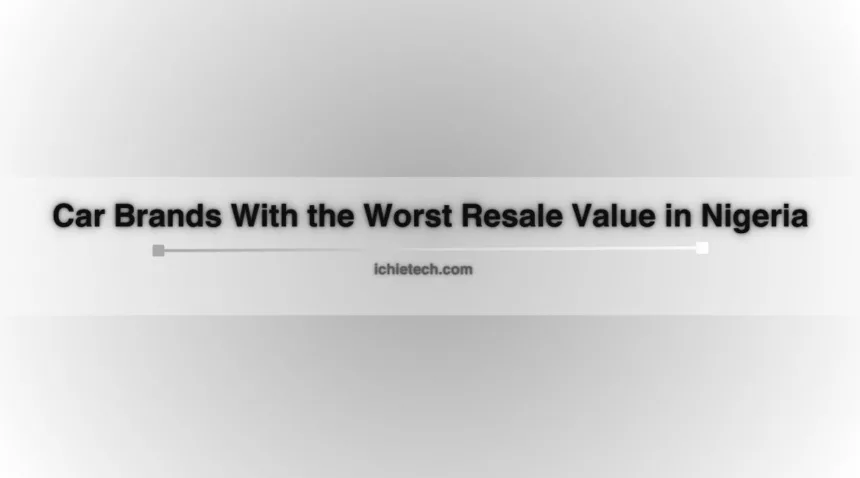When buying a car, it is important to consider not only the initial purchase price but also the resale value. This is because the resale worth of a car can significantly impact your overall cost of ownership. In Nigeria, there are a number of car brands that tend to have poor resale values.
These brands are often associated with high maintenance costs, poor reliability, and a lack of demand in the Nigerian market. In this article on IchieTech, we will discuss the 7 car brands with the worst resale value in Nigeria. We will also provide some tips for buying a car with a good resale value.
List of the Car Brands With the Worst Resale Value in Nigeria
When it comes to Car Brands With the Worst Resale Value in Nigeria, each brand has its own unique dynamics. Let’s take a closer look at each of these brands:
1. Volkswagen
Volkswagen, a popular German car brand, has struggled to maintain its resale worth in Nigeria. This is due to a combination of factors, including high maintenance costs and a lack of demand in the Nigerian market.
2. Audi
Audi, another German car brand, has also experienced poor resale value in Nigeria. While some of its models, such as the Q7 SUV, have held their value well, others have struggled due to high maintenance costs and a lack of demand.
3. Geely
Geely, a Chinese car brand, is relatively new to the Nigerian market and has yet to establish a strong resale value. This is partly due to a lack of brand recognition and a limited dealer network.
4. Ford
Ford, an American car brand, has also experienced poor resale value in Nigeria. While some of its models, such as the Explorer SUV, have held their value well, others have struggled due to high maintenance costs and a lack of demand.
5. Range Rover
Range Rover, a luxury SUV brand, has struggled to maintain its resale value in Nigeria due to high maintenance costs and a lack of demand for luxury vehicles in the Nigerian market.
6. Hyundai
Hyundai, a popular Korean car brand, has experienced mixed results when it comes to resale value in Nigeria. While some of its models, such as the Tucson SUV, have held their value well, others have struggled due to high maintenance costs and a lack of demand.
7. Kia
Kia, another Korean car brand, has also experienced mixed results in Nigeria. While some of its models, such as the Sportage SUV, have held their value well, others have struggled due to high maintenance costs and a lack of demand.
8. BMW
BMW, a popular German luxury car brand, has struggled to maintain its resale value in Nigeria due to high maintenance costs and a lack of demand for luxury vehicles in the Nigerian market.
9. Volvo
Volvo, a Swedish car brand known for its safety features, has struggled to maintain its resale value in Nigeria due to a lack of demand for its vehicles in the Nigerian market.
10. GAC
GAC, a Chinese car brand, is relatively new to the Nigerian market and has yet to establish a strong resale value. This is partly due to a lack of brand recognition and a limited dealer network.
11. Nissan
Nissan, a Japanese car brand known for its diverse range of vehicles, experiences a mixed bag when it comes to resale worth in Nigeria. Certain models, particularly SUVs and trucks, manage to retain their value well. However, the same cannot be said for some of Nissan’s smaller, less popular models, which may struggle to maintain their initial price tags.
12. Jeep
Jeep, an American SUV brand, has struggled to maintain its resale value in Nigeria due to high maintenance costs and a lack of demand for luxury vehicles in the Nigerian market.
Conclusion
When buying or selling a car in Nigeria, it’s important to understand its resale value. However, predicting this value can be difficult, as some brands may struggle to maintain their value, and certain models within a brand may hold their value better.
To navigate this complex market, it’s important to take a nuanced approach and consider specific factors for each brand and model. As Nigerian drivers continue to explore the country’s roads, making informed decisions about car purchases becomes increasingly important to avoid losing value due to depreciation.










